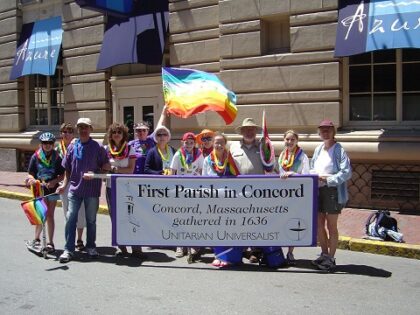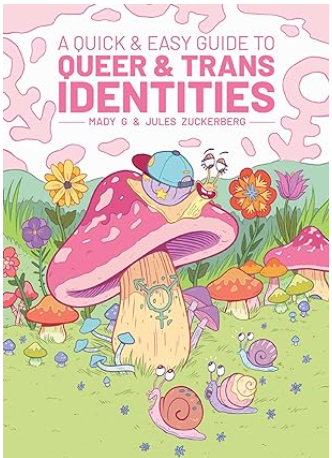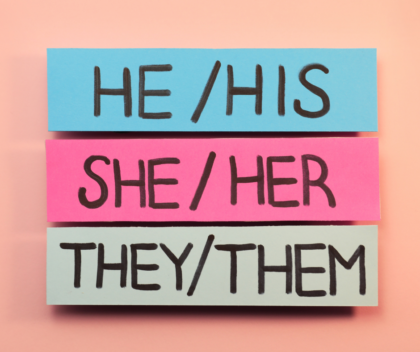Diversity Committee
Diversity Committee
Leader: Suzie Weaver
Our Mission Statement: The Diversity Committee works to help First Parish be a welcoming place for all, regardless of sexual orientation, gender expression or identity, family structure, race, ethnicity, culture, ability or disability, socioeconomic status, or any other quality that might contribute to a sense of exclusion. We educate the congregation and raise awareness about diversity issues in order to foster a sense of inclusion for all in our faith community.
Our focus: The Diversity Committee covers a broad range of social justice issues, with our primary focus on LGBTQ justice and Disability justice. In addition fostering a sense of inclusion for all within our own faith community, we also work to promote justice in the broader community.
When do we meet? We meet monthly on the 2nd Tuesday of each month at 6:30 pm via Zoom. Please see FP Weekly in the week prior to the meeting for the Zoom link, or contact Suzie Weaver to be added to our mailing list and receive notices of our meetings.
The Diversity Committee has been reflecting upon the power of personal pronouns – such as he/him/his, she/her/her, they/them/theirs – as an area for strengthening bridges of mutual understanding, inclusion, and respect for everyone’s gender identity.
“Is it a boy or a girl?” Any parent who doesn’t dress their baby in pink or blue is asked this question many times. Some of them may answer, “It’s a baby!” but most do not, and it’s pretty much the only time in your life that your gender can be frankly inquired about in ordinary conversation. We learn the no-need-to-guess, “he or she” view of minds and bodies from a young age, and we learn to be embarrassed if someone mistakes our gender. Recently, though, there is a recognition that the “he/she model” (gender binary) doesn’t accommodate the way many people identify about their own gender.
For those who identify outside the he/she gender binary or who are trans, feelings of isolation, marginalization, or disrespect may arise when someone refers to them by the wrong gender (misgenders them). Respectfully finding out and using the pronouns that each person prefers builds community, respect, and inclusivity by conveying, “I see and appreciate you.”
Communicating our preferred pronouns to each other can be hard and may not feel natural to some at first. You might have several ways that depend upon the scenario. In some situations it might be the norm to add, ”My pronouns are…” right after you introduce yourself by name. For some individuals, sharing pronouns publicly in a group setting might not be welcome for reasons of privacy. In a meeting, a leader may suggest sharing pronouns, but as an option so no one feels pressure to “out” themselves. Including pronouns in email signatures, next to your name on Zoom, and on nametags can also convey a message of honoring everyone’s gender identity.
The Diversity Committee encourages everyone to learn more on this topic by clicking HERE, which Rev. Liz Weber includes in her email signature.
Guide to Queer and Trans Identities
Here’s a great resource for anyone who is curious about learning more about queer and trans identities. Rev. Paul Langston, our Social Action  Director, has a great book entitled “A Quick & Easy Guide to Queer and Trans Identities” which he is making available to our congregation. Here’s a summary of what the book covers: In this quick and easy guide to queer and trans identities, cartoonists Mady G and Jules Zuckerberg guide you through the basics of the LGBT+ world! Covering essential topics like sexuality, gender identity, coming out, and navigating relationships, this guide explains the spectrum of human experience through informative comics, interviews, worksheets, and imaginative examples. A great starting point for anyone curious about queer and trans life, and helpful for those already on their own journeys!
Director, has a great book entitled “A Quick & Easy Guide to Queer and Trans Identities” which he is making available to our congregation. Here’s a summary of what the book covers: In this quick and easy guide to queer and trans identities, cartoonists Mady G and Jules Zuckerberg guide you through the basics of the LGBT+ world! Covering essential topics like sexuality, gender identity, coming out, and navigating relationships, this guide explains the spectrum of human experience through informative comics, interviews, worksheets, and imaginative examples. A great starting point for anyone curious about queer and trans life, and helpful for those already on their own journeys!


You must be logged in to post a comment.